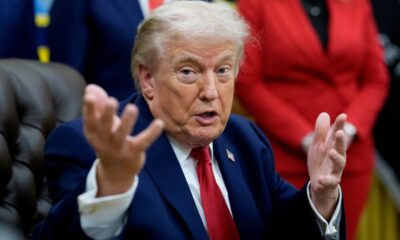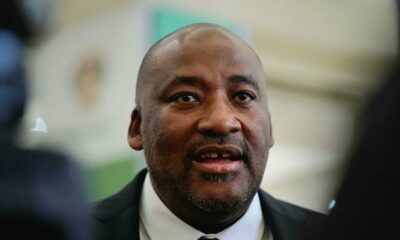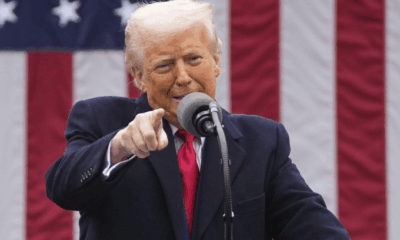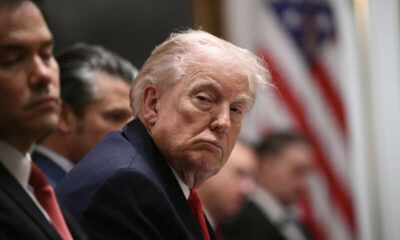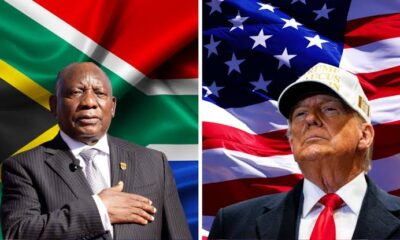411
Genuine Genocide or Political Farce? What Afrikaner Farmers at Nampo Really Think of Trump’s Refugee Offer
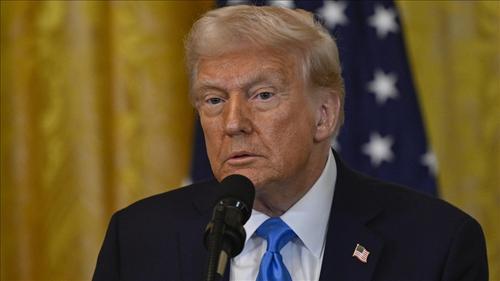
he scent of livestock, diesel, and fresh earth lingered in the air as thousands of farmers gathered for the annual Nampo Agricultural Show, one of the largest farming expos in the southern hemisphere. But this year, discussions around tractors and grain yields shared space with something more politically charged: President Donald Trump’s refugee offer to white Afrikaners.
Only days earlier, a group of 49 white South Africans—mostly Afrikaners—boarded a flight to the United States after being accepted as refugees under Trump’s administration. The move stirred controversy, both in South Africa and internationally.
At Nampo, the response among farmers was divided and deeply emotional.
“There Is a Genocide Here” – Or Is There?
Standing near a stone monument listing farmers killed since the 1960s, maize grower John Potgieter, 31, didn’t hesitate.
“There is no doubt there is a genocide in South Africa,” he said. “Obviously, genocide is a broad word. It is not a mass genocide like the Holocaust.”
Potgieter, like some other Afrikaner farmers, believes white minority communities are under attack—despite data suggesting otherwise.
Official statistics show that while South Africa has a high murder rate, most victims are young black men in urban areas. Farm attacks do occur, but experts estimate about 50 farmers from all races are killed annually.
“This Is My Country” – Staying Put Despite the Risks
Not all farmers agree with Trump’s portrayal of persecution.
“It is much safer on a farm than in a town,” said Eduard van der Westhuizen, a sheep and goat farmer holding a shepherd’s crook.
“There are problems, murders sometimes, but it’s not targeted. I won’t go anywhere else. This is my country, I love it.”
For many Afrikaners, South Africa is home, despite the economic challenges and concerns over land reform.
Government Dismisses Claims of Persecution
South African leaders swiftly rejected Trump’s refugee offer, calling the narrative politically motivated and factually untrue.
“They can’t provide any proof of any persecution because there is not any form of persecution,” said Foreign Minister Ronald Lamola.
President Cyril Ramaphosa, who is due to meet Trump in Washington next week, was even more direct:
“There is no genocide here. We are beautiful, happy people—black and white—working and living together.”
Some Call the Refugee Programme “A Farce”
Not everyone at Nampo is interested in uprooting.
A grey-moustached farm equipment dealer described the refugee programme as a “farce,” accusing Trump of using South Africa to score political points back home.
Even Danny Snyman, an 18-year-old aspiring farmer, said while he might visit the U.S., he’d likely return.
“I would definitely go overseas, maybe tour and see what it’s like, maybe work for a month or two. But yeah, I’d probably come back.”
A Tense Backdrop: Guns, Land, and Legacy
Gun sales have reportedly surged in farming communities affected by crime. At Nampo, vendors displayed AR-15s and handguns, reflecting a growing sense of vulnerability.
Underlying the debate is South Africa’s painful land ownership history. White farmers, though just 8% of the population, still own over 70% of farmland, a lasting legacy of apartheid.
As international observers weigh Trump’s refugee gesture, for many on the ground, it’s less about politics and more about a simple but loaded question: Stay or go?
Whether you see it as a humanitarian move or political theatre, Trump’s refugee offer has ignited debate among South Africa’s white farming community. At Nampo, the divide is clear—some feel forgotten, others feel misrepresented. But one thing unites them: a deep-rooted connection to the land, and uncertainty about what lies ahead.
{Source: The Citizen}
Follow Joburg ETC on Facebook, Twitter , TikTok and Instagram
For more News in Johannesburg, visit joburgetc.com

